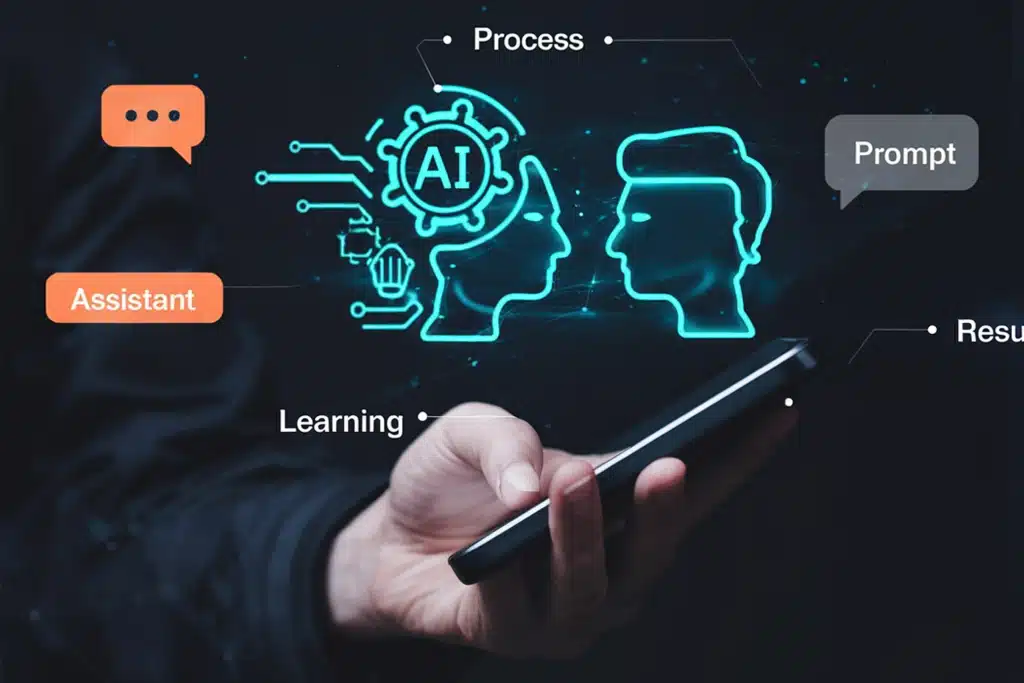Artificial Intelligence (AI) has rapidly evolved over the past few years, moving from futuristic concepts to everyday tools that shape businesses, creativity, and daily life. As we enter 2025, AI is no longer a novelty—it’s a necessity for those who want to stay competitive, productive, and innovative. From ChatGPT revolutionizing content creation to MidJourney transforming visual design, AI tools are reshaping industries at an unprecedented pace. In this article, we explore the top AI trends of 2025, practical applications, challenges, and how businesses and creators are leveraging these innovations to thrive.
Top AI Tools Dominating 2025
ChatGPT and AI Chatbots
ChatGPT has become a household name in AI-driven communication. This powerful AI model allows businesses and individuals to generate text, answer questions, automate customer support, and even write marketing copy. In 2025, ChatGPT has evolved to support multi-lingual communication, context-aware conversations, and advanced content generation tailored to individual business needs.
Key Applications:
- Customer service automation: 24/7 support with minimal human intervention.
- Content creation: Blogs, social media posts, and emails are generated faster.
- Education & tutoring: Personalized learning assistants provide instant guidance.
Expert Insight: OpenAI reports that ChatGPT is being used by millions of companies worldwide, highlighting its role as a central productivity tool for businesses and creators.
MidJourney & AI Art Tools
MidJourney is transforming how creatives design visuals and marketing materials. By converting textual prompts into stunning graphics, artists and marketers can generate unique, high-quality imagery in minutes—something that used to take hours or days.
Benefits in 2025:
- Marketing & branding: Rapid creation of social media visuals and campaign graphics.
- Art & design: Enables artists to explore new creative styles with AI-generated inspiration.
- Cost-effective content: Reduces dependency on hiring external designers.
According to TechCrunch, AI art tools are expected to contribute over $5 billion in creative industry revenue by 2025, emphasizing their growing market influence.
AI in Productivity
Beyond creative tools, AI is embedding itself into productivity software. Applications like Notion AI, Jasper, and AI coding assistants streamline workflows, manage projects, and automate repetitive tasks. Businesses can now focus more on strategy and innovation rather than mundane tasks.
AI Trends Shaping Businesses
Automation Across Operations
By 2025, AI-driven automation is a staple in industries ranging from manufacturing to finance. Companies use AI to optimize supply chains, schedule resources, and reduce operational errors. Automation not only improves efficiency but also minimizes costs, giving businesses a competitive edge.
Predictive Analytics for Marketing & Sales
AI tools now analyze massive datasets to predict customer behavior, optimize campaigns, and enhance sales strategies. Predictive analytics helps businesses deliver personalized recommendations, improve conversion rates, and build stronger customer relationships.
AI in Cybersecurity
With digital transformation comes risk. AI is increasingly used to detect cyber threats, prevent fraud, and secure sensitive data. Machine learning models can identify anomalies in real time, helping companies stay one step ahead of cybercriminals.
Ethical and Practical Challenges
While AI offers tremendous potential, it also brings challenges:
- Bias & fairness: AI models can inadvertently reflect biases present in training data, leading to unfair outcomes.
- Privacy concerns: Handling sensitive data requires robust privacy policies and compliance with global regulations like GDPR.
- Regulation & compliance: Governments are beginning to impose guidelines to ensure responsible AI use, making ethical deployment essential.
Expert Quote: Gartner predicts that by 2025, over 75% of AI implementations will fail to deliver expected value due to poor ethical and governance practices.
Opportunities for Creators and Entrepreneurs
AI isn’t just for large corporations. Freelancers, small business owners, and content creators are leveraging AI to scale their work and unlock new revenue streams.
Monetizing AI-Generated Content
From blogs to digital art, creators can generate high-quality content efficiently. AI tools help reduce production time, allowing creators to focus on strategy and engagement.
Starting AI-Powered Businesses
Entrepreneurs can now start AI-driven businesses with minimal technical knowledge. Whether it’s a chatbot service, AI design agency, or content automation platform, AI opens doors to innovative opportunities.
Expanding Creativity
AI acts as a collaborator, not a replacement. Designers, writers, and marketers use AI to experiment with styles, brainstorm ideas, and produce work faster without compromising originality.
Predictions for AI in 2025
Industry experts anticipate several AI breakthroughs this year:
- Generative AI improvements: More realistic text, images, and even audio generation.
- Natural Language Processing (NLP) advancements: AI understanding context better, enabling smoother human-AI interaction.
- Industry adoption: Gartner predicts that 90% of companies will implement AI tools in some capacity by the end of 2025.
- AI democratization: Tools are increasingly accessible to individuals, startups, and smaller enterprises, not just tech giants.
Expert Insight: McKinsey highlights that companies integrating AI effectively could see productivity increases of 20–40%, emphasizing AI’s transformative potential.
How Individuals Can Stay Ahead
Learn AI Tools
Understanding AI applications is crucial. Platforms like Coursera, Udemy, and LinkedIn Learning provide courses on AI, machine learning, and tool-specific tutorials.
Incorporate AI in Daily Productivity
Individuals can use AI for task automation, personal finance, content generation, and even learning new skills. For example, AI writing assistants save time for bloggers and marketers, while AI design tools assist creative projects.
Join AI Communities
Engaging in AI forums, social media groups, and tech communities keeps you updated on the latest trends, tools, and best practices.
FAQ About AI Tools & Trends in 2025
Q1: What are the most popular AI tools in 2025?
A: ChatGPT, MidJourney, Notion AI, Jasper, and various AI productivity, design, and coding tools dominate the landscape.
Q2: How is AI transforming small businesses?
A: AI automates repetitive tasks, improves customer interactions, provides predictive insights, and enhances marketing efficiency.
Q3: Can AI replace human creativity?
A: No. AI is a tool to augment creativity, enabling humans to experiment faster and scale content production.
Q4: Are AI tools safe and ethical to use?
A: Yes, if used responsibly. Companies must follow data privacy laws and ethical guidelines to ensure fairness and transparency.
Q5: How can beginners start using AI effectively?
A: Start with free AI tools, online tutorials, and gradually incorporate them into projects. Focus on learning use cases relevant to your work or business.
Conclusion: Embracing AI in 2025
AI in 2025 is more than a trend—it’s a revolution. From enhancing productivity and creativity to transforming businesses and industries, the potential is limitless. However, with great power comes responsibility: ethical AI use, privacy compliance, and human oversight are essential. Whether you are a creator, entrepreneur, or professional, embracing AI tools strategically can unlock unprecedented growth and innovation.


